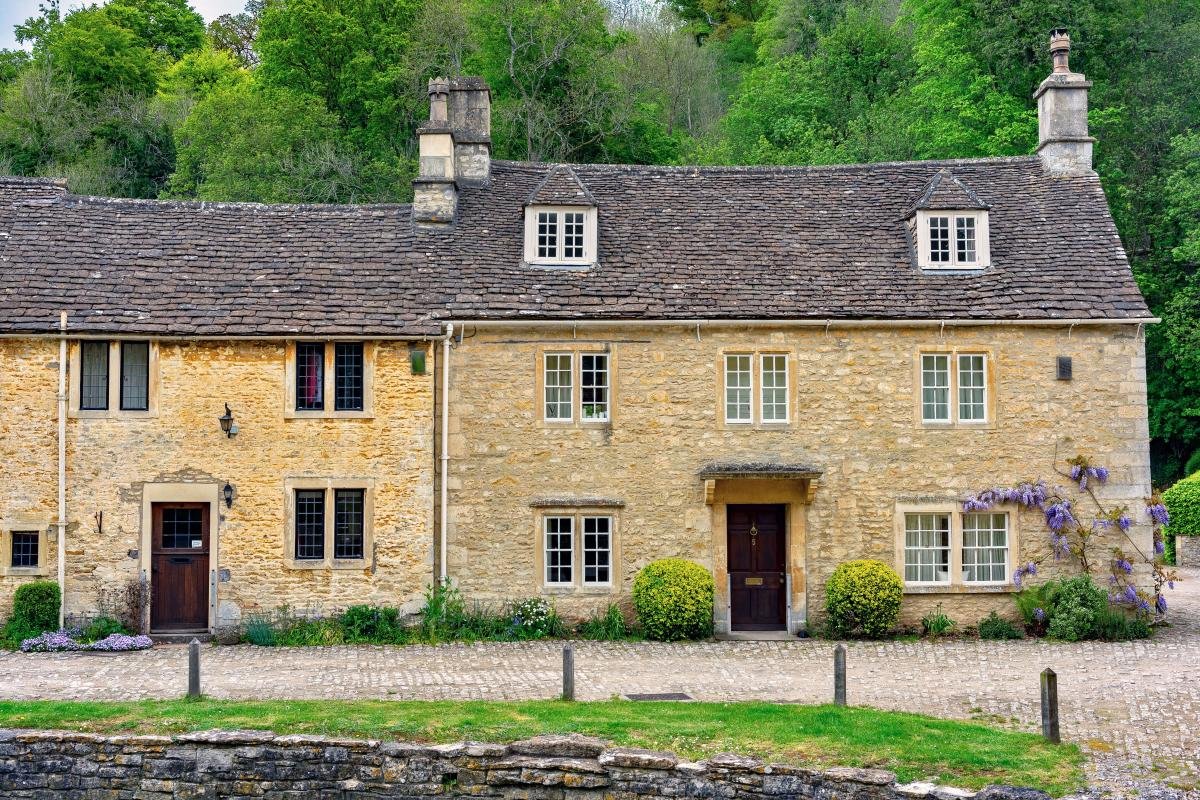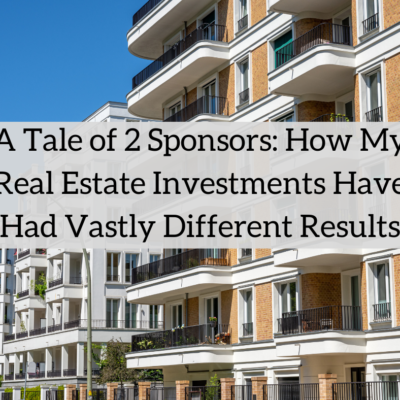With the current property market looking stagnant at best, making a return on your investment, whether on a home you plan to live in, a buy-to-let or a holiday let is harder than ever.
You must think carefully before investing in a property — turnkey homes that come fully redecorated are popular, but you can end up paying over the odds for them and while fixer-uppers can be cheap, they can cost more in the long term with the increasing price of building work and materials.
To help you decide what you should compromise on (and what you absolutely should not), we asked four property investors and developers for their top tips when it comes to choosing a property with your head, rather than your heart.
What property investors look for
1. Location
It’s little surprise that many property investors cited location as the top item they look for. “A prime location consistently surpasses the benefits of renovations. If the area isn’t appealing, then no amount of financial investment or renovation will change that,” says Oliver Sanhaji, prime central, North and East London advisor at Middleton Advisors.
Read more: 10 ways to make a room feel more spacious
Whether it’s a property for yourself or to rent out, buying the worst house on the best street is something all investors look for, the property they can change, the location they can’t.
“The number one is location. This is the most important: is it near attractions and tourist hot spots? Will it have year-round appeal?” says Amanda Brahams, who develops holiday lets and runs Unique Cotswold Cottages.
2. Freehold houses
Property investors looking for properties to rent out prefer freehold tenures. This gives them more scope to add features, such as loft conversions, and it makes renting them out simpler.
“If you are buying as a rental investment, then freehold houses are optimum,” says Marc Schneiderman of Arlington Residential. “There are no landlords to seek consent and permissions from and unlike flats, there are no service charges to pay, which will eat into your rental income.”
“Buying a leasehold property can cause problems — often the lease will have a restriction for short-term lets (even if others in the building do it),” says Brahams.
3. The condition of bathrooms and kitchens
They say kitchens and bathrooms sell homes and that’s true to a point. Newly refurbished, modern kitchens and bathrooms come with a hefty price tag, so you might end up paying over the odds. In contrast, if these rooms need some serious TLC, this might be costly too, especially in the current climate of spiralling labour and material costs.
Read more: How garden rooms can add value to your home
Ideally, the sweet spot is a property where the kitchen and bathrooms are a little tired but can be freshened with an inexpensive paint job.
“Having a contemporary style kitchen and bathroom significantly increases the appeal to buyers and renters,” says Melissa Lewis, founder of ML Property Venture. “The condition of these rooms is key when calculating costs, as depending on the age of the property, a total rip-out could be necessary.”
4. The ability to add bedrooms
Turning a large studio into a small one-bedroom or a two-bedroom into a three-bed will add value, even if the square footage remains the same.
“Is there potential to add extra bedrooms? This can be anything from looking at whether a larger room can be split, to an extension or loft/garage/cellar conversion. Ensuring adequate living space around it, is also key,” says Lewis.
5. Basic refurbishments
Renovating a property should add value, but you must think carefully about how much work needs to be done. Is it just a bit of painting or are there more substantial problems?
Lewis says you need to look at the overall condition of the property. “You’re looking to see whether the refurbishment is cosmetic or whether there are bigger issues, e.g. is there just condensation because of a lack of airflow or is there a bigger damp issue? Are there cracks in the walls and, if so, are they just surface cracks in the paint or could there be a subsidence issue?” she says.
“When I look around a property, I’m focused on walls and flooring first and then the overall condition of doors, frames and windows, etc.”
Read more: How to avoid tax creep in retirement
6. Ability to add period features
While older properties can fall short when it comes to energy efficiency, people still want period features in their homes and will pay a premium for them.
“If a property has undergone renovations that involve removing period features, such as cornices, fireplaces or original shutters, restoring these features can result in a significant return on investment,” says Sanhaji.
And, if you plan to use the property as a short let, Brahams suggests adding “a log burner or fireplace. Is there a chimney or are we able to put in a log burner of some sort? This helps drive winter stays.”
7. A low-maintenance garden
Whether it’s a small back garden in the city or acres of land, the key to outside space is that it’s low maintenance.
A small patch of grass is great for an urban home as outside space brings you closer to nature and is easy to keep neat. For a bigger garden, woodland and meadows are popular as they can be largely left alone. Avoid fussy hedging that will have to be cut or beds that require constant weeding.
“Pay attention to the garden. This can sometimes be overlooked, but clearing and landscaping costs add up,” says Lewis. “This goes for back and front gardens. Also, bear in mind ongoing maintenance costs; whilst a feature lake and whirlpool in the back garden would be beautiful — maintenance can end up costly for the end user.”
Read more: Which first-time home buyer scheme is right for me?
For holiday lets, think carefully about who will be staying. “For smaller properties, a low-maintenance patio garden is ideal. For bigger properties, a garden where children and dogs can securely play is ideal, but too big and the cost of maintaining it needs to be considered,” says Brahams. “On that note, if it has parking (or parking can be created out of the garden) that will make a real difference.”
What property investors avoid
1. Major structural damage
While most investors are on the lookout for homes that need a cosmetic refurbishment, they are very wary of properties that require anything substantial doing.
“[I avoid] subsidence, major damp, etc., unless the price is right and you have a good team in place,” says Linda Webb of Refresh & Impress. “On the whole, it’s more of a hassle than it’s worth to the average investor.”
2. Indoor swimming pools
While our increasingly hot summers have led to a rise in the popularity of outdoor pools, the same can’t be said for those that are inside.
Read more: Lesser-known ways to save money on property
“Indoor pools add little value; they are expensive to maintain and many clients who have them, don’t use them enough to warrant the expense,” says Schneiderman.
3. Hi-tech features
This seems to be an area where investors are split — some value smart lighting, heating and gadgets, while others shy away from it, as they can break down easily and be complicated to run.
“As the world evolves, we’re seeing more gadgets that make our life easier,” says Lewis. “There has been a conversation recently about keyless front doors — some developers I’ve spoken to only install digital locks now, whereas some buyers/renters prefer to carry a set of keys and the thought of having a thumbprint entry system would put them off buying/renting.”
4. Energy inefficient homes
With the government likely to introduce a minimum energy performance certificate (EPC) rating of C for rental properties by the end of 2028, with a view to eventually rolling this out to all homes, how expensive a home is to heat is now a top consideration.
While traditional stoves, original window frames and open fires have charm, they are slowly becoming less desirable as a result.
“Buyers are seeking eco-friendly alternatives over less sustainable materials, like AGA stoves, poorly installed windows or outdated heating systems,” says Sanhaji.
5. Listed status or planning restrictions
Listed properties are lovely to look at, but investors tend to avoid them because improving them is either impossible or involves a lot of bureaucracy, time and money.
“If the property is listed then this may reduce the opportunity for the refurbishments that we can do,” says Brahams. “[Also] it will be expensive, plus potentially time-consuming, as planning permission is required.” To a lesser extent, the same can also be said for properties in a conservation area or area of outstanding natural beauty.
Watch: How the government plans to speed up the planning process for new homes
Download the Yahoo Finance app, available for Apple and Android.





